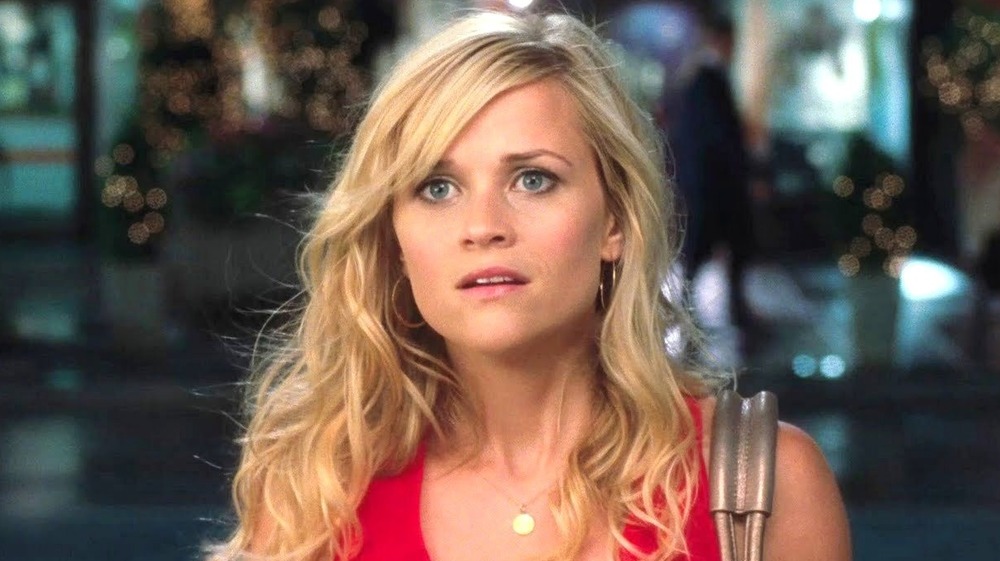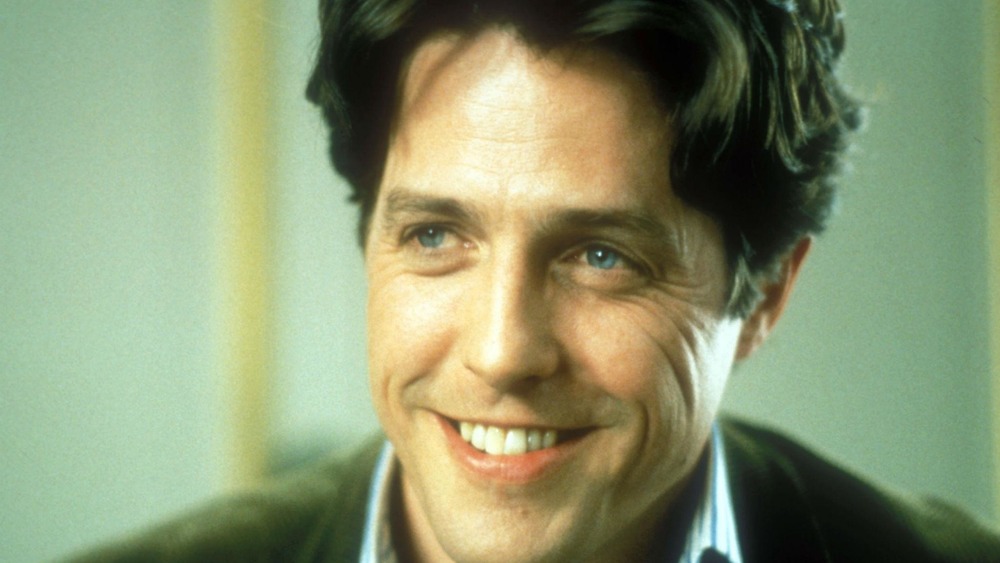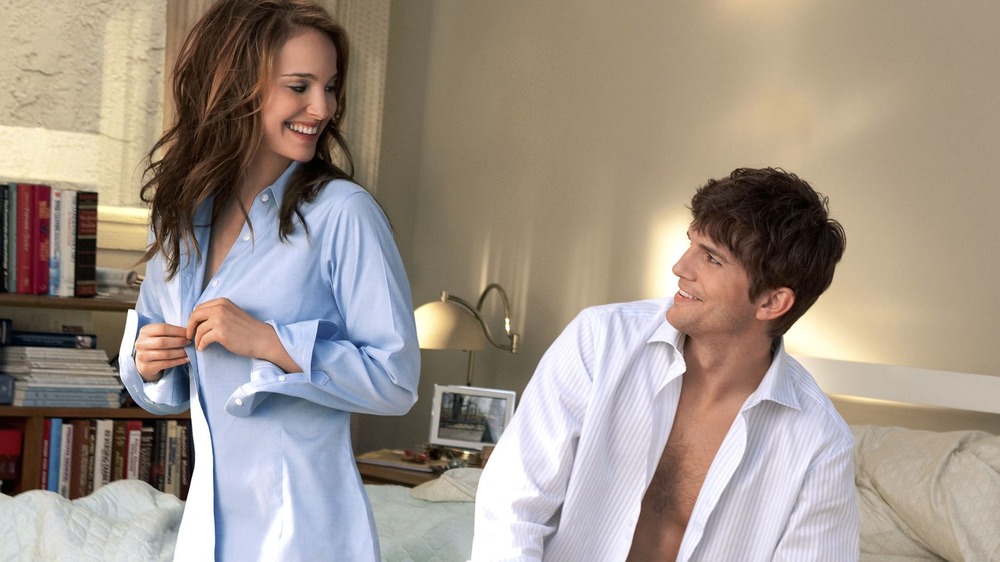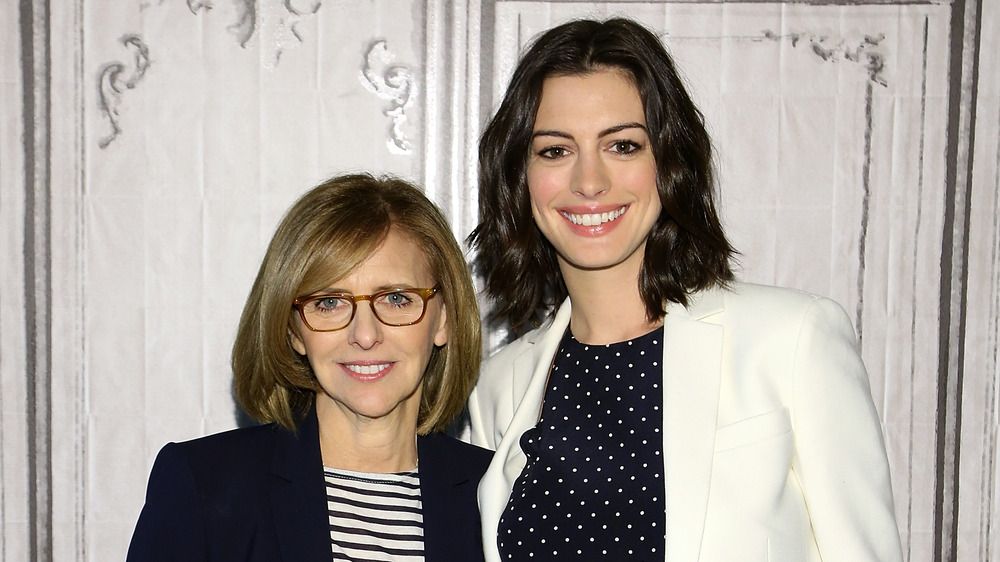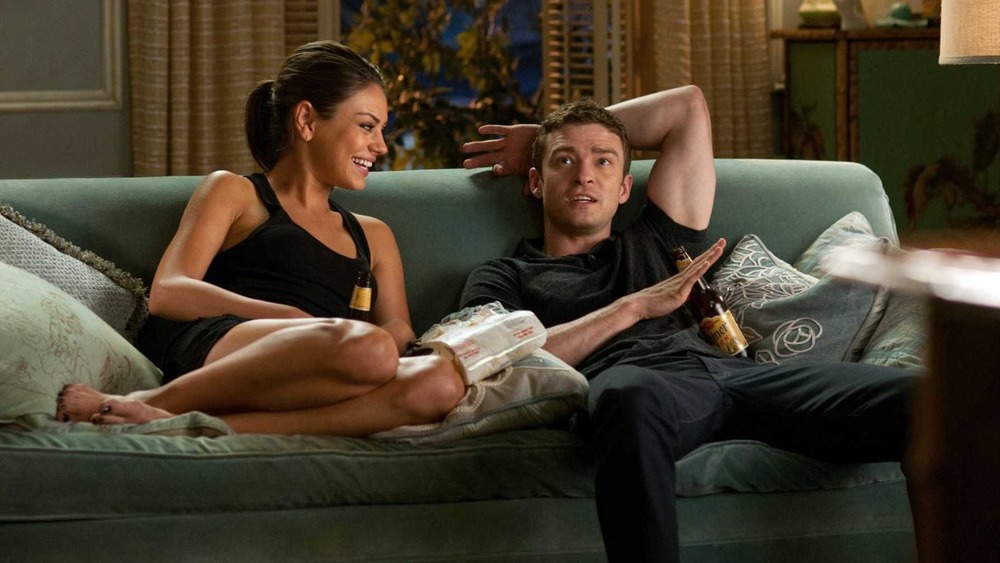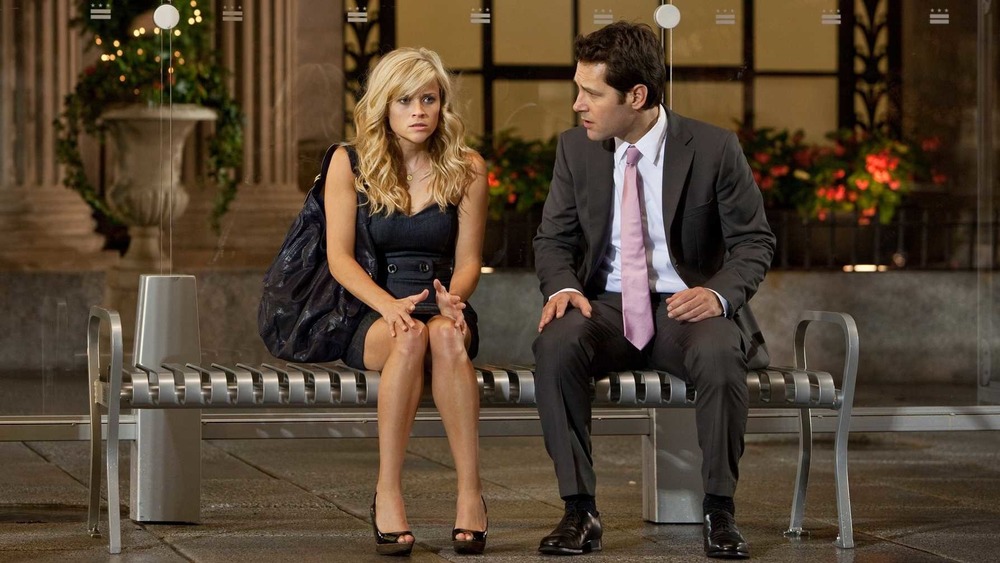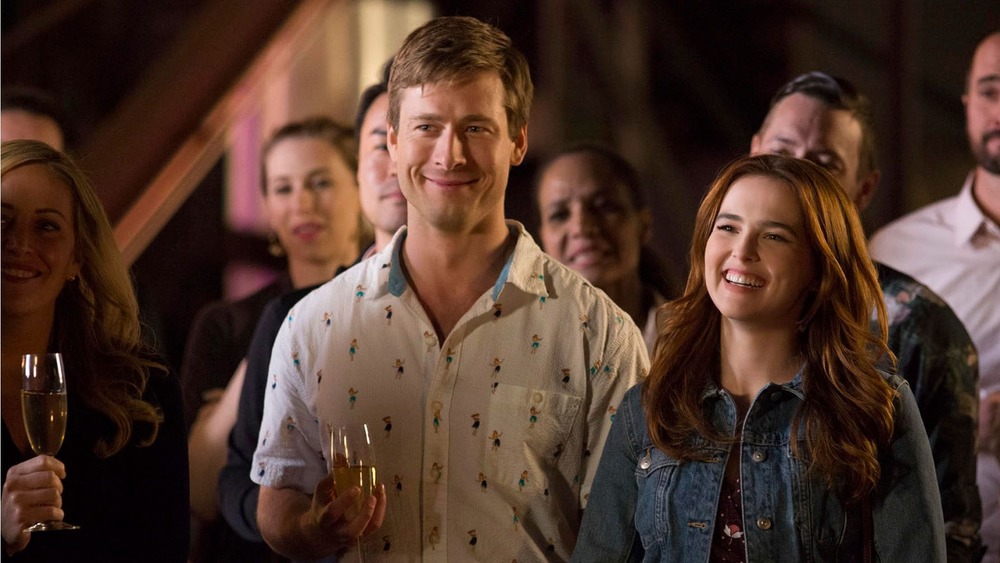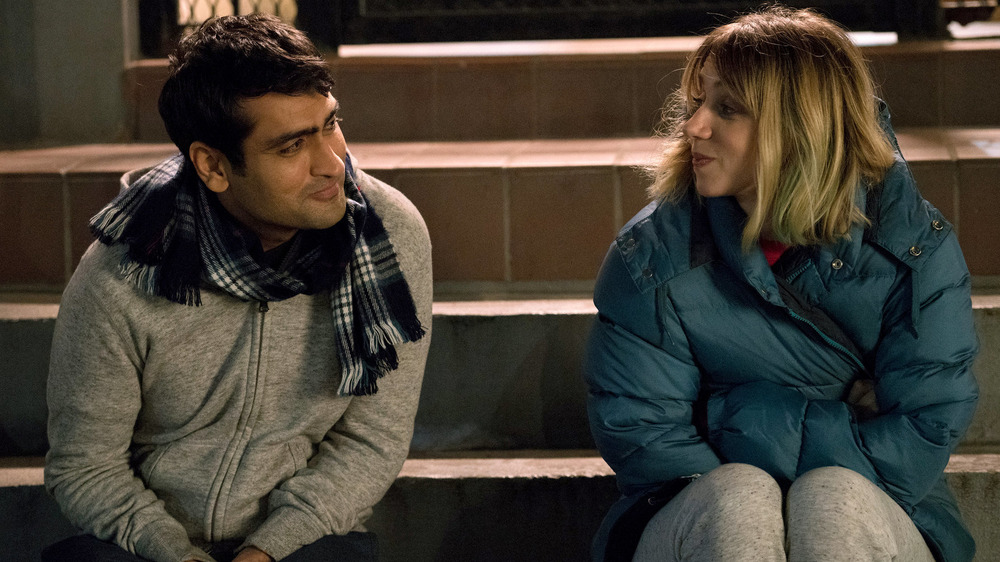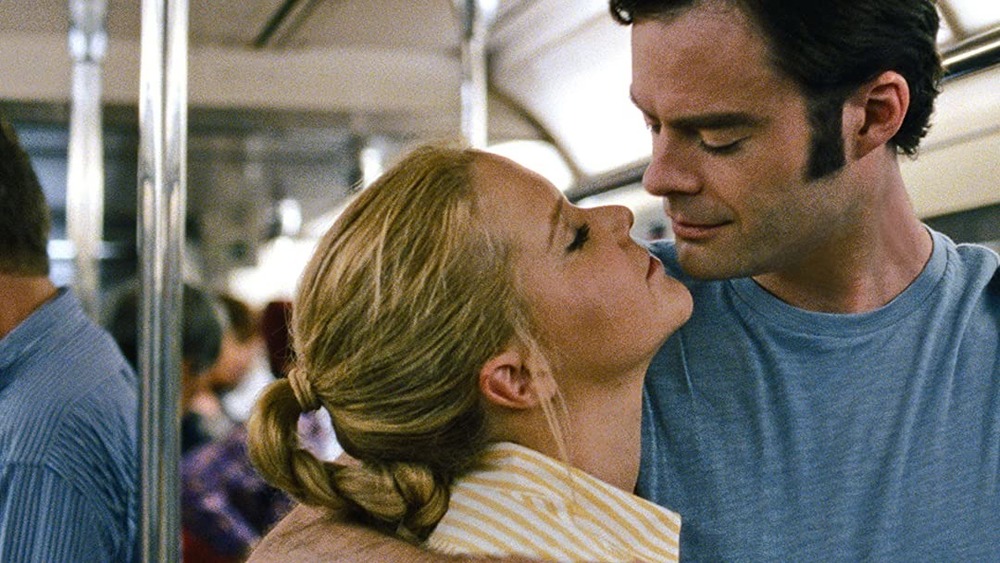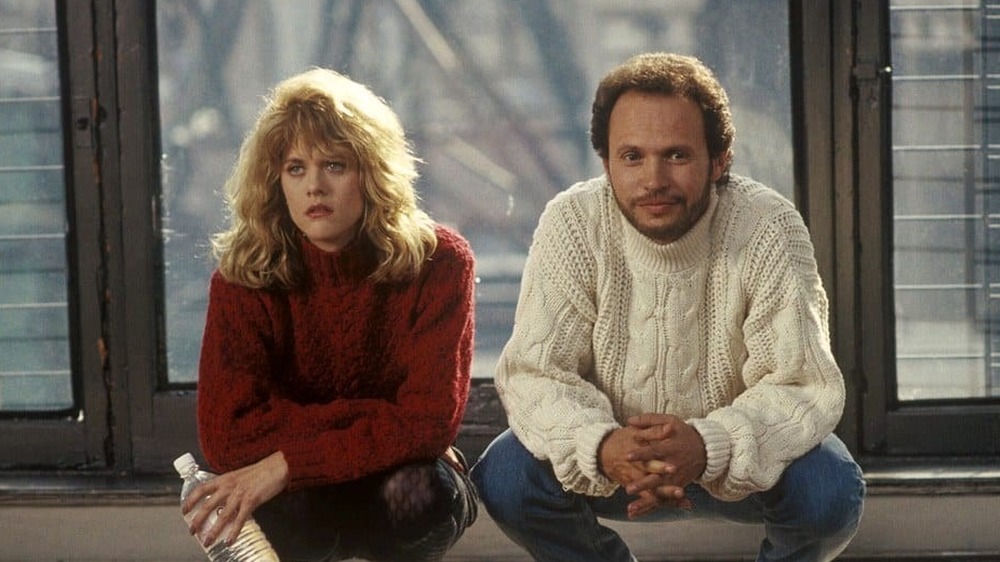The Real Reason Big-Screen Romantic Comedies Stopped Being Made
In a career profile in Vulture, The Holiday and Something's Gotta Give director Nancy Meyers noted that it didn't look likely she'd be able to get another rom-com off the ground anytime soon. "Once superhero movies really became the only movie studios cared about, the experience of making a movie like mine changed," Meyers observed. "I remember when I finished The Intern, I thought, 'I think this is it.'" While Meyers didn't close the door on returning to a genre she's widely associated with, the grim outlook for her return reflects the dire state of rom-coms in the modern Hollywood landscape.
From the early days of The Philadelphia Story and Roman Holiday to 21st-century movies like The Big Sick and Enough Said, the romantic comedy has long been a staple of big-screen cinema. In recent years, though, the genre has become steadily less and less prominent. The genre's troubles aren't just evident in quotes from Nancy Meyers. Everything from larger film industry shifts to the sudden disappearance of famous faces widely associated with the genre has contributed to the modern decline of the rom-com. Looking over these variables, one begins to truly understand the kind of enormous challenges that have made Meyers so glib about the prospect of directing any future entries in the genre.
Big rom-com stars moved on
For a while, it was impossible to see a new theatrical rom-com without also seeing Matthew McConaughey's face in it. Across the 2000s, McConaughey used the success of How to Lose A Guy in 10 Days to launch himself as the new face of romantic comedies. He wasn't the only big-name performer to regularly perform in the genre, either. Hugh Grant, Julia Roberts, Sandra Bullock, just to name a few, scored some of their biggest hits through regularly appearing in these movies.
However, these big-name draws eventually left the genre. McConaughey, for instance, left the genre at the start of the 2010s due to a desire to pursue his own creative ambitions rather than hefty paychecks. Around the same point, Hugh Grant, fresh off the box office failure of Did You Hear About the Morgans?, also opted to stop headlining romantic comedies. "It's just that I got old and ugly, and I'm not appropriate for romantic comedy films anymore, which has been a great blessing," Grant told The Sydney Morning Herald in explaining his reasons for stepping away from the genre.
Grant and McConaughey were no exceptions. The last decade has seen all kinds of famous faces deciding to distance themselves from the genre. Without these noteworthy performers, the rom-com has struggled to attract audiences. Moviegoers used to come to these films as much for familiar faces like McConaughey and Grant as anything else. Without them, the genre has struggled.
The struggle to launch new rom-com stars
A key modern issue for modern romantic comedies has been the struggle to launch actors who can become fixtures of the genre. This problem stems from several issues, including the simple lack of modern hit rom-coms. The tepid box office of Something Borrowed, for example, indicates that it didn't get audiences frothing at the mouth for a wave of rom-coms headlined by its leading lady, Ginnifer Goodwin. The similarly lackluster box office of That Awkward Moment also cut Zac Efron's career as a rom-com lead abruptly short.
However, issues can even surface when a newcomer to the genre successfully headlines a rom-com. In many cases, these performers have opted to not pursue further lead roles in rom-coms. Amy Schumer, for example, scored her first hit movie with the rom-com Trainwreck. However, her follow-up star vehicles were more broad comedies like Snatched. Meanwhile, Constance Wu followed up the rom-com box office sensation Crazy Rich Asians with the crime thriller Hustlers, and Emilia Clarke has no other rom-coms on the horizon after starring in Last Christmas in 2019. These career choices are a sharp contrast to the likes of Matthew McConaughey or Renee Zellweger, who headlined rom-coms regularly during portions of their careers.
Without any fresh stars to become new fixtures of the genre, the romantic comedy has suffered in the modern film landscape.
The absence of go-to rom-com filmmakers
Certain directors become fixtures of a certain genre, such as John Ford with Westerns, Gene Kelly with musicals, and Alfred Hitchcock with thrillers. In some cases, having directors who are seen as leaders in certain genres can be essential to those genres evolving. Just look at how Steven Spielberg, the creator of the modern blockbuster, helping to shepherd J.J. Abrams and Collin Trevorrow as modern successors to the summer blockbuster throne.
The romantic comedy has suffered in the last decade by not having a figurehead that can continue to champion the genre's virtues. Some iconic rom-com filmmakers, like Gary Marshall and Nora Ephron, have passed away. Others, like Nancy Meyers (pictured) and James L. Brooks, have struggled to get financing for new movies. Even rom-com journeymen filmmakers like Robert Luketic and Andy Tennant have moved on from this domain. With Hollywood studios drastically scaling back the amount of rom-coms they make, the directors most directly linked to this genre haven't been able to create new movies that could reassert the value of rom-coms.
The exodus of rom-com directors didn't just apply to long-established figures in the genre. This issue also impacted newly successful directors, like Anne Fletcher, who got her rom-com breakthrough with the 2009 film The Proposal. It's also limited the chances to discover new rom-com filmmakers who could become the modern-day equivalent to Nancy Meyers or Garry Marshall. With new and old filmmakers unable to champion the genre, the rom-com as a whole has suffered.
The genre lapsed into a parody of itself
On the TV show Mystery Science Theater 3000, most movies are open to being ridiculed by the show's hosts and their robot friends. However, some genres are basically off-limits because they don't hold up well to being ridiculed, with one example being comedies. "It's almost impossible to riff a comedy and especially a bad comedy," observed Jim Vorel of Paste. "You can only groan or object that 'this joke isn't funny' so many times." This problem eventually caught up to the rom-com, whose formula had become so familiar to audiences that newer entries in the genre attempted to spice things up by going the self-aware route.
Now, modern rom-com characters try to have their cake and eat it too by expressing awareness of the genre's familiar staples (e.g. the gay best friend, the shopping montage, etc.) while also indulging in those staples. This approach yielded a handful of cult classics like They Come Together, which took a more aggressively subversive approach to the genre. For the most part, though, movies like Friends with Benefits and Isn't It Romantic? just didn't satisfy audiences. Where modern romantic comedies that deliver polished versions of familiar hallmarks of the genre (like Crazy Rich Asians) have proven satisfying, other recent entries in the genre that derive their laughs from lampshading cliches just don't appeal to anyone. As Crow T. Robot and Tom Servo can attest, making parodies of comedies just doesn't work.
The impact of costly box office flops
Towards the end of the 2000s, romantic comedies were suffering from a string of box office underperformers. To be sure, the genre wasn't delivering solely box office duds thanks to hits like The Proposal and It's Complicated. However, films like Confessions of a Shopaholic, Leap Year, and Did You Hear About the Morgans? all came up woefully short financially.
Perhaps the most painful box office flop for the genre, though, was How Do You Know, which was like The Avengers of rom-coms. Sweet Home Alabama star Reese Witherspoon headlined the project, paired up with Paul Rudd, Owen Wilson, and Jack Nicholson while As Good As It Gets director James L. Brooks was behind the camera. Costing $120 million to make yet only grossing $48.7 million worldwide, it was a major, major flop.
The fallout here was immediate. Not only did Witherspoon leave the rom-com genre for nearly a decade, but the film's distributor, Sony/Columbia, has largely left the rom-com game. The studio that had been in this genre dating back to It Happened One Night in 1934 was suddenly pulling back, an attitude that spread across Hollywood. To be sure, there's something to be said for the double standard that superhero movies can withstand bombs like Green Lantern and endure while rom-coms don't get the same privilege. But fair or not, flops like How Do You Know ensured that rom-coms were now seen as an undesirable expensive commodity.
Streamers got into the rom-com game
While major theatrical movie studios are hesitant to make romantic comedies, that doesn't mean there isn't a market for them. Streaming services have become a new go-to home for these projects. Set It Up, for example, was originally set up at MGM for a theatrical release before moving over to Netflix. Since then, Netflix has released a slew of rom-coms, including The Wrong Missy and Holidate. Netflix isn't the only streaming service getting in on the rom-com game, though. Hulu was the home of Palm Springs, and the streamer also took over the domestic release of Happiest Season once the COVID-19 pandemic made it impossible for the film's original home, TriStar Pictures, to distribute it theatrically.
While rom-coms used to be a popular genre for Sony/Columbia and Paramount Pictures, the shifting priorities of the film industry towards big-budget film franchises mean these theatrical movie studios have largely abandoned rom-coms, which don't typically yield cinematic universes. Their disposal is the gain of streaming services everywhere, with Netflix especially creating a mini-empire dedicated exclusively to rom-coms aimed at a wide range of different age groups. That doesn't mean it's impossible to get a rom-com made at a theatrical movie studio. Universal, for instance, has the upcoming Jennifer Lopez/Owen Wilson vehicle Marry Me slated for release in May 2021. However, streamers have gotten such a strong foothold on the genre that it's unlikely they'll stop dominating this domain anytime soon.
The genre struggles to connect with modern audiences
Romantic comedies can entertainingly comment on the modern world in ways few other genres can. The Apartment, for example, was trailblazing in 1960 for how it frankly approached casual sex. Being the rare Hays Code-era movies to comment on a common part of the lives of moviegoers, it helped to make The Apartment as relevant as it was lucrative.
That same sense of relevance has escaped the last decade of theatrical rom-coms, which have struggled to create stories that resonate with the general public. Take the Gerard Butler film Playing for Keeps. The movie's premise concerning a hunky former soccer player having to choose between two different women and speeding around in luxurious cars just wasn't something that tapped into the experiences of general moviegoers. Similarly, That Awkward Moment and its depiction of millennial romantic struggles felt like a collection of caricatures rather than something authentic. This problem even extended to once-reliable staples of the genre like Adam Sandler and Drew Barrymore, whose 2014 reunion project, Blended, was a box office dud centering on financially opulent characters dealing with over-the-top situations that thoroughly failed to connect with moviegoers.
The rare modern rom-com that, like The Apartment, tapped into something real was The Big Sick and its story told through the perspective of the son of Pakistani immigrants. This autobiographical project touched on experiences ripped from reality rather than an out-of-touch studio executive's mind, and in the process, it resonated with the public at large.
There's been a larger shift away from big-screen comedies
It isn't just romantic comedies that have struggled on the big screen recently. Comedies in general have had a rough time in the last several years. This became apparent by the summer of 2018, which the Los Angeles Times observed was "the first summer in more than 20 years in which no traditional comedy [grossed] more than $100 million at the domestic box office."
The problems plaguing big-screen comedies are numerous. For one thing, once reliable lead performers like Will Ferrell and Ben Stiller have recently headlined box office flops like Holmes & Watson and Zoolander 2, respectively. Even more troublesome is that, save for Kevin Hart and Tiffany Haddish, the last decade has struggled to deliver new comedy stars who can take over for Ferrell and Stiller.
Then there's increased competition from comedies you can watch at home, big-screen superhero movies intruding on their turf with their rampant comedy, and simply a dearth of fresh concepts. Worst of all is that studios have dialed back the amount of comedies they create, including romantic comedies. While Universal is still committed to the genre, other studios, like Sony/Columbia, have drastically reduced the amount of comedies they produce. In the process, rom-coms have been caught up in this dismissive wave against their parent genre. Rom-coms aren't just suffering from their own problems, they're being weighed down by Hollywood's lack of interest in comedies in general.
Killer rom-com concepts have been lacking
The phrase "elevator pitch" is frequently used to describe an ideal way of selling a movie. If you could sell your movie in a quick conversation in an elevator, you've got something special on your hands. The biggest romantic comedies, like My Big Fat Greek Wedding or Sleepless in Seattle, used to thrive on easily explainable premises that immediately captivate moviegoers. In recent years, though, big-screen romantic comedies have had difficulty coming up with concepts that could make good "elevator pitches" or even just capture the interest of audiences.
Mostly, this is due to a problem that's plagued a lot of modern theatrical release — a heavy reliance on familiar brand names. Too often, modern Hollywood has regurgitated familiar brand names and leaned too heavily on star power to compensate for weak premises. Rom-coms haven't been impervious to this issue. A third Bridget Jones movie? A remake of Overboard? Even original projects like Home Again felt too derivative of older movies.
By contrast, the one rom-com box office sensation in the last several years, Crazy Rich Asians, had an appealing and unique premise in several respects. A fish-out-of-water protagonist (which has proved successful for the genre in the past), glitzy locales in Singapore, the rare instance of a primarily Asian cast in a Hollywood movie — these were all qualities that ensured that Crazy Rich Asians had something new to offer in its starting concept. It's the rare 21st-century rom-com that could work in an elevator pitch.
Studios stopped making mid-budget movies
Over the last decade, there's been lots of discussion over the death of the mid-budget movie. As early as August 2012, Dorothy Pomerantz of Forbes was writing about how Disney was looking to build their business over big blockbusters like The Avengers rather than mid-budget hits like The Help. This problem has only become exacerbated in the years, with most American movie studios shifting their priorities to big-budget affairs rather than the mid-budget area where romantic comedies live.
This is the same problem that had led Nancy Meyers to go on hiatus from the genre. Her struggles to get any mid-budget rom-coms off the ground, despite having a near-perfect box office track record for over two decades, speaks volumes to the difficulties facing the genre. Unfortunately, those problems aren't likely to go away anytime soon. Filmmakers like Ben Affleck have publicly stated that the ongoing coronavirus pandemic will only exacerbate Hollywood's aversion to theatrically released mid-budget films, including romantic comedies.
With these kinds of issues to deal with, it's no wonder, then, that the theatrically released rom-com has fallen to the wayside. Even the rare success like Crazy Rich Asians doesn't spur the greenlighting of further rom-coms. It's merely looked at as an anomaly rather than as an indicator of audience demand. Unfortunately, when it comes to what kind of films do and don't get made, rom-coms are suffering due to movie studio executives only picking the movies that make the most cents.
